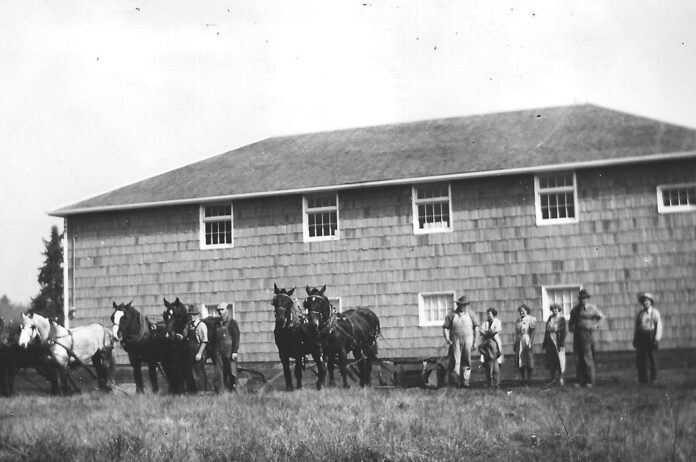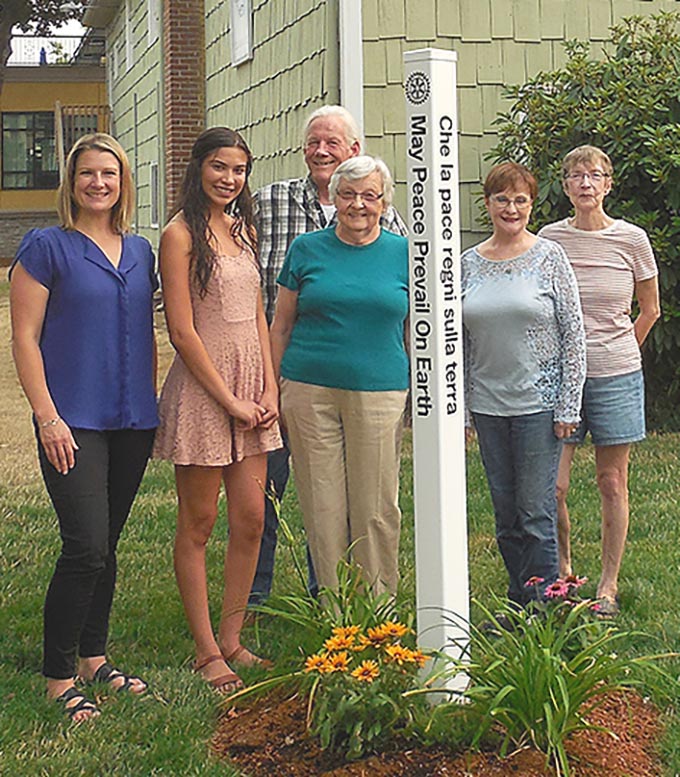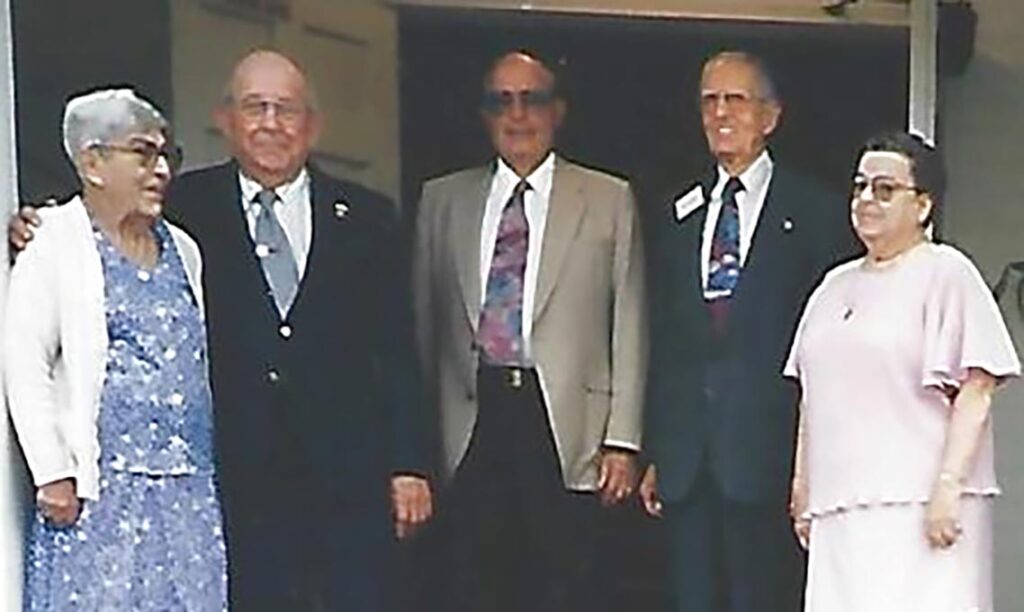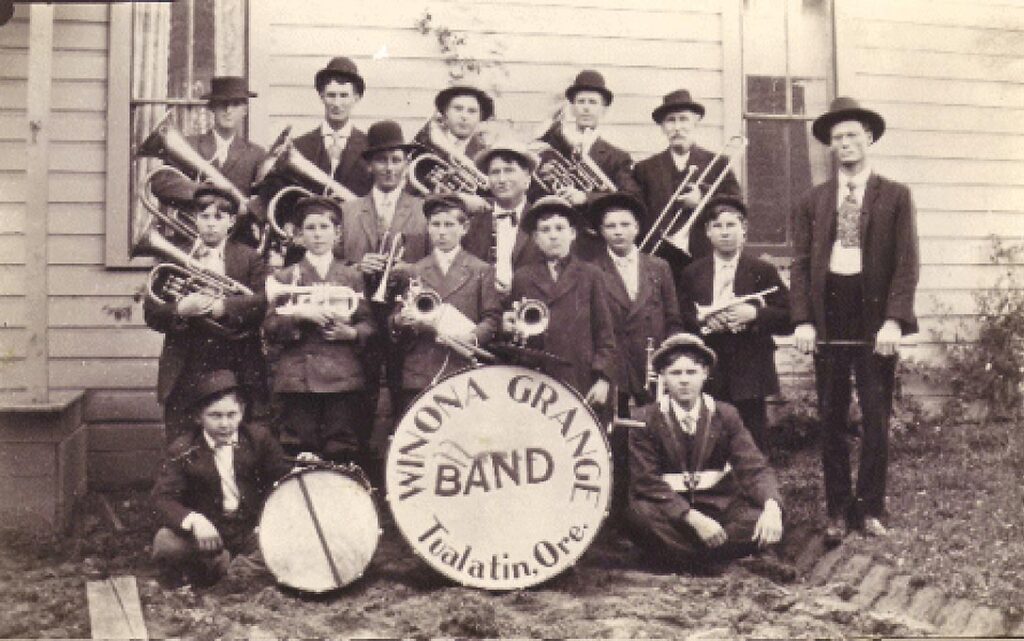
The coronavirus has caused Winona Grange to postpone its 125th anniversary party originally scheduled for the date of its first meeting in 1895. The Grange still plans to celebrate and invite former members and their descendants to attend when large gatherings are deemed safe.
Tualatin’s oldest community organization was founded long before Tualatin was incorporated in 1913. Twenty-four-farm family members met with State Grange Deputy Dr. Joseph Casto on Sept. 19, 1895 to organize the Grange, elect officers and choose a name.
Since Tualatin Grange, now Frogpond, already existed, they chose the name Winona, to honor the deceased eldest daughter of J. R. C. Thompson. Winona Cemetery is also named after her. Thirteen of Winona Grange’s first members are buried there.
Nationally, the Grange was founded in 1867 to bring isolated farmers together to share what they had learned about farming methods from their own experimentation.

The Grange was the first American organization to give women an equal voice and vote with men. Twelve of Winona’s first members were women and 12 were men. They ranged in age from 17 to 68 with an average of 38.
Who were these first members? Edward Byrom is a familiar name because the elementary school is named for him. He was elected Chaplain, an office he held until he died in 1911. Jurgens Park and Avenue are named for William Jurgens who served as Treasurer until his death in 1909.
Laura Thompson, a 19-year-old teacher, was the first Secretary. Later she served as Tualatin’s Postmistress.
Besides the Byrom, Jurgens and Thompson families, first members were Dora and Nellie Cummins, William and Weda Day, Ida Francis, George Galbreath and daughter Bertha, B. R. Henry, R. F. Potts, W. Sedlak, John L. Smith, and Dr. and Mrs. W. J. Taylor.
Initially Grange meetings were held upstairs over Thompson’s store on the third Saturday of each month. Minutes of those meetings survive. They began at 10 a.m., recessed for “dinner,” resumed at 2 p.m., and concluded with a program of music, recitations and discussion of a topic like what should be taught in school, the automobile, or women’s suffrage.
Members wanted their own meeting place, but proposals to buy the old red schoolhouse or add a room onto the school gymnasium were not accepted. So, they continued to rent.
Finally, in February 1939, members voted to build a two-story building on a lot donated by Grange Treasurer L. P. Johnson. Ground was broken May 22. Ethel Pennington was Master (President) and chief fundraiser while her husband, Merrell, and Archie Walker took charge of construction. Their biggest problem was having work lined up to keep the 58 members busy. The first meeting in the new hall was held on Feb. 26, 1940.
In 125 years, Winona Grange has had 37 Presidents. Many are familiar Tualatin names: Cimino, Sagert, Robbins, Pohl, Christensen and Martinazzi.

While the number of farmers in the Tualatin area declined, the number of Grange members steadily increased. The Grange had 100 members in 1944 and 200 in 1951 because Grange Insurance Association offered low-cost coverage.
However, Winona Grange did not lose its agricultural connection. Agriculture Committee Chair Mark Lafky and others reported at each meeting on victory gardens, backyard chickens, how to deal with moles, slugs and other pests, and even cautions on the use of chemicals. Today, Ag Chair Norm Parker reports at each meeting, often on what he has read in The Capital Press.
The Grange is non-partisan, meaning the organization does not support any candidate or party. But since the 1860s when Granger Laws regulated railroad and grain elevator pricing, the organization has advocated for and against legislation. Winona members wrote resolutions, got voters to sign petitions and testified at hearings. This year, Winona Grange has adopted resolutions opposing marijuana facilities in Tualatin and linking metro counties for COVID-19 re-opening.
For more than 30 years, Sears, Roebuck and Company sponsored a nationwide Community Service contest for Granges. In 1981 Winona won first place in Oregon over 272 other Granges. Members volunteered over 1,700 hours. Their primary project was designing the Tualatin-Durham Senior Center, now named after Juanita Pohl, one of the four Grangers on the seven-member committee. They visited 16 centers from Portland to Springfield to observe what worked. In addition, Winona Grange recycled 4.5 tons of newspaper; collected old eyeglasses; made toys for the Waverly Children’s Home; and donated $800 to charities.
In 2020, Winona’s primary project was sending 52 boxes of vegetable and herb seed packets to community gardens, Granges and other groups in the Northwest. In mid-April, the last two boxes were given to Neighbors Nourishing Communities gardeners and other Tualatin residents.
From 1947 through the 1950s, Tualatin needed social activities for highschool-aged teens. The Grange hall was the perfect place for dance lessons and dances that attracted more than 60 each week. Many became Grange members.
Traditional Grange ritual includes singing and marching. In 1897, Winona bought an organ, which many members played. Members shared their musical talents during programs. In 1908, the Grange bought instruments for the brass band that E. D. Mort organized. Band members agreed to care for their instrument; pay a 50¢ fine for missing a rehearsal; and avoid vulgar talk and stories. Today Irish and ukulele jams are held in the hall on Sunday afternoons. See www.winonagrange271.org for Sundays and times.

There have been challenges. The most serious was the flood of ’96. The Tualatin River overflowed leaving 46” of oily, smelly water and mud on the ground floor of the hall, ruining the oil furnace and kitchen appliances. Thanks to Tualatin firemen, the Lion’s Club, Mix N Mingles and Robin Hoods square dance clubs, the contents were cleaned and disinfected, and money was raised to replace or repair the furnishings.
An aging membership no longer holds a community fair, public breakfasts and dinners, plays or card parties. Now the hall is rented by many groups. The Grange partners with others to host free or low-cost classes on first aid, gardening, and mental health.
Winona Grange welcomes community input on unmet needs and actively seeks new members with energy and willingness to help organize them. If you are a former member, a descendant of members, or have a Grange story to tell, we would love to hear it and invite you to the party.
Contact us at info@winonagrange271.org or call 503-430-8582.


















